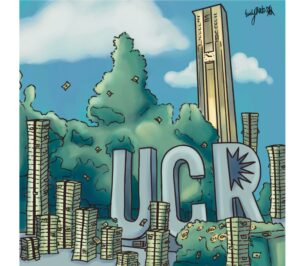
On a long journey to address historic injustices against Native Americans, the University of California (UC) system announced free tuition for Native American students. However, that is not enough to reconcile the fact that universities are built on stolen land. UC Riverside (UCR) is built upon the Cahuilla [ka-wee-ahh], Tongva [tong-va], Luiseño [loo-say-ngo] and Serrano [se-ran-oh] peoples’ land and a mere acknowledgment of these communities at the beginning of school meetings and events does not make it acceptable. Free tuition and acknowledgment for Native American students are not adequate; more needs to be done. There needs to be additional funding than only free tuition for Native American students, genealogy should be used instead of tribal enrollment as a factor for eligibility, better support systems and full or some form of restitution.
Even with free tuition, Native American students face financial challenges due to high costs of living. UC expects them to rely on external scholarships, grants or loans, which may not cover all expenses. This shift in responsibility from the UCs to other organizations poses a significant barrier for Native American students, making college affordability a challenge.
The free tuition program for Native American students excludes non-federally recognized tribes or students who have been disenrolled, which prevents many Native American students from participating in this program. Students from adoption or foster care backgrounds may lack access to the documents needed to enroll in their tribe, further limiting access to this benefit. Thus, universities must reshape how they account for Native students with varying tribal statuses by using “genealogy rather than tribal enrollment.” By shifting the focus from tribal enrollment to genealogy, universities can better account for Native students with diverse tribal statuses. This approach recognizes the complexity and diversity within Native communities, allowing institutions to create more inclusive and accurate representations of Indigenous students’ backgrounds and experiences.
American institutions, including UC campuses and universities nationwide, have taken Indigenous lands and harmed communities. Since the United States (U.S.) colonized the land, climate change has deteriorated the climate. When the native peoples were taking care of the land, there was a healthy balance in nature. The U.S. is the second-leading country contributing to carbon emissions. Offering free tuition is the absolute least that can be done to begin addressing the historical and ongoing injustices inflicted upon Native communities and their land.
Furthermore, while free tuition is a step in the right direction, supporting Native American students on campus is equally as important. Particularly support for indigenous students leaving reservations needs to be expanded. UCs should boost on-campus resources for Native students to ease this transition. While most UC campuses have some Native American resource centers, other campuses, such as UC Irvine, do not. Instead, there is a pamphlet listed as a resource on campus that doesn’t even address the Native American community. The UCs, as a whole, must do better. The resource centers should also be updated to include enhanced counseling, culturally sensitive programs and academic support tailored to their specific needs.
Overall, one way the UCs can provide restitution to Native American students is through restorative justice. This could be in the form of offering competitive payment for land alongside actions such as policy changes, community engagement, cultural revitalization, and partnership. Native communities are owed genuine apologies to address historical injustices and to promote equity and inclusion.
The UC is attempting to rectify the historical injustices they have committed against Native Americans by offering free tuition, but more action is necessary. The UCs benefit from this land, yet they are not paying full restitution. Native people have a greater right to be here than the Universities and the U.S. The UCs utilize pathways to offer complete restitution or develop a better solution to a pathway to help heal this injustice with cooperation and collaboration from Native peoples.







